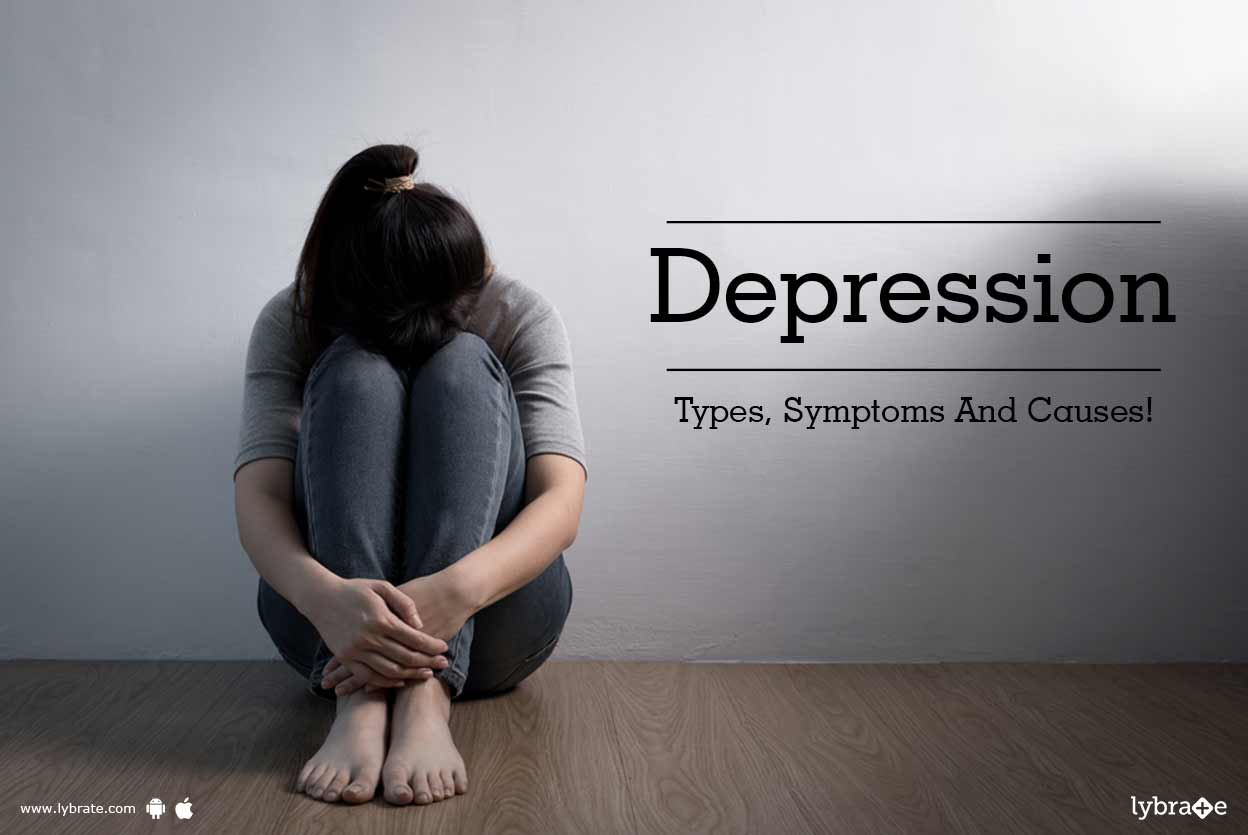Depression - Types, Symptoms And Causes!
Although confused with natural and temporal feelings of grief or sadness, depression is not merely a weakness or something to be taken lightly. It is quite a serious issue and can last for long periods of time.
Depression does not merely involve feelings of hopelessness, helplessness, and worthlessness, but is much more terrible and usually has a detrimental effect on your day-to-day functioning.
There are many different types of depression. These include:
1. Major depression
2. Bipolar depression
3. Psychotic depression
4. Chronic depression (even dysthymia)
5. Seasonal depression
6. Substance-induced depression
7. Postpartum depression
8. Double depression
9. Treatment-resistant depression
10. Secondary depression
11. Masked depression
Symptoms: Signs and symptoms of clinical depression can vary depending largely on how severe it is, how long it lasts and how often it comes into play, and differs from individual to individual. While some might experience but a few signs of depression, others might experience more. Here is a list of symptoms that might indicate that you may be suffering from depression:
1. Being depressed for most parts of the day, especially in the morning
2. Feeling guilty or worthless almost every day
3. More inclined towards pessimism
4. Insomnia or hypersomnia
5. Regular contemplations of death or suicide
6. Significant weight gains or weight loss
7. Appetite loss or overeating
8. Feelings of high fatigue and low energy levels almost every day
9. Indecisiveness or impaired focus and difficulty concentrating
10. Lack of interest in almost all daily activities or hobbies, including sexual activity
11. Irritability and restlessness
12. Cramps, headaches and digestive problems which persist even with treatment
Causes: Although the exact causes of depression have not been determined as of yet, depression may be caused by a combination of a number of factors:
1. Biological differences
2. Hormonal imbalances
3. Brain chemistry
4. Inherited traits or genetic disorders
If you wish to discuss about any specific problem, you can consult a psychiatrist.



+1.svg)
